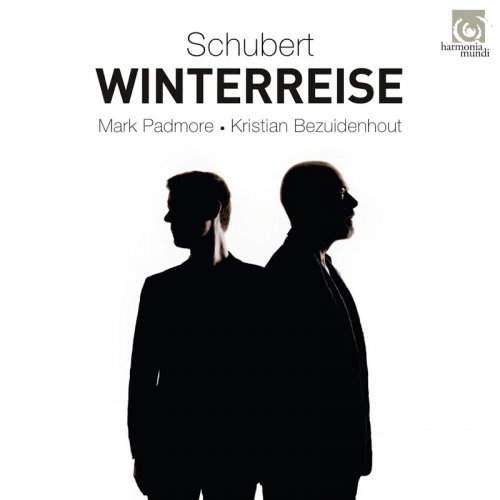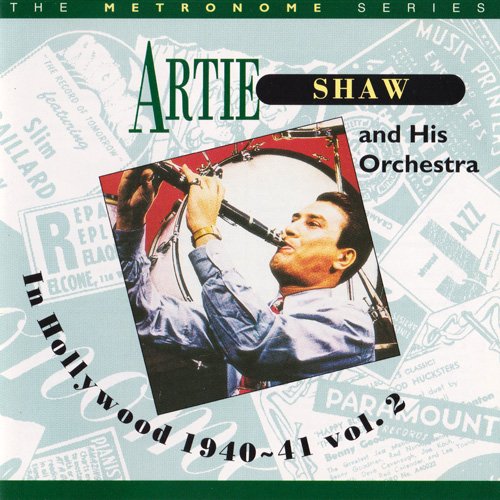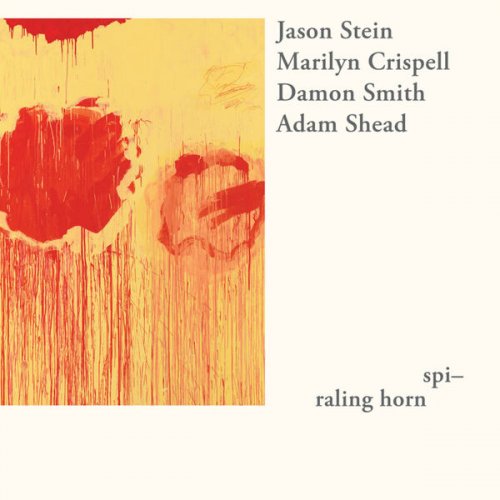Mark Padmore and Kristian Bezuidenhout - Schubert: Winterreise (2018)

Artist: Mark Padmore and Kristian Bezuidenhout
Title: Schubert: Winterreise
Year Of Release: 2018
Label: Harmonia Mundi
Genre: Classical
Quality: FLAC (tracks)
Total Time: 69:04
Total Size: 220 MB
WebSite: Album Preview
Tracklist:Title: Schubert: Winterreise
Year Of Release: 2018
Label: Harmonia Mundi
Genre: Classical
Quality: FLAC (tracks)
Total Time: 69:04
Total Size: 220 MB
WebSite: Album Preview
01. Winterreise, D. 911: 1. Gute Nacht 05:46
02. Winterreise, D. 911: 2. Die Wetterfahne 01:41
03. Winterreise, D. 911: 3. Gefrorne Tranen 02:15
04. Winterreise, D. 911: 4. Erstarrung 02:50
05. Winterreise, D. 911: 5. Der Lindenbaum 04:46
06. Winterreise, D. 911: 6. Wasserflut 04:06
07. Winterreise, D. 911: 7. Auf dem Flusse 03:12
08. Winterreise, D. 911: 8. Ruckblick 01:57
09. Winterreise, D. 911: 9. Irrlicht 02:41
10. Winterreise, D. 911: 10. Rast 03:09
11. Winterreise, D. 911: 11. Fruhlingstraum 03:57
12. Winterreise, D. 911: 12. Einsamkeit 02:48
13. Winterreise, D. 911: 13. Die Post 02:11
14. Winterreise, D. 911: 14. Der greise Kopf 03:06
15. Winterreise, D. 911: 15. Die Krahe 01:54
16. Winterreise, D. 911: 16. Letzte Hoffnung 01:59
17. Winterreise, D. 911: 17. Im Dorfe 02:52
18. Winterreise, D. 911: 18. Der sturmische Morgen 00:48
19. Winterreise, D. 911: 19. Tauschung 01:21
20. Winterreise, D. 911: 20. Der Wegweiser 04:01
21. Winterreise, D. 911: 21. Das Wirtshaus 03:55
22. Winterreise, D. 911: 22. Mut 01:21
23. Winterreise, D. 911: 23. Die Nebensonnen 02:52
24. Winterreise, D. 911: 24. Der Leiermann 03:37
A journey into the Romantic self: It is clear from its genesis that Schubert did not have any strict dramatic action in mind in this song cycle. Unlike Die schöne Müllerin, Winterreise tells no story; it is a journey into the interior, into ever-deeper realms of loneliness. As Peter Gülke has put it: ‘The only progress the wanderer makes is a progress in perception, the agonising discharge of his memories, constantly threatened by regressions. . . . Continually in search of confirmations of his condition, he observes with an all too alert, painfully keen sensibility, and like an egocentric melancholic refers everything to himself or selects objects so that they can serve as mirror images and corroborations.’ To that extent, the sequence of the songs is not of decisive importance, since ‘each of the melancholies he experiences is the worst at the time’ (Gülke again).
The testimony of his friends justifies us in relating this ‘psychological profile of a melancholic character’ to Schubert himself. Nikolaus Harnoncourt once described the boundlessly subjective as the decisive factor in Schubert’s music. In Winterreise, the composer allowed his friends to look more deeply into his heart than ever before, which of course tended to repel sanguine characters like Schober. The ironic refraction and distance of the typical Viennese is here sublated (aufgehoben, in the Hegelian sense). Schubert’s friend Johann Mayrhofer immediately recognised this. For him, the cycle was a symptom of ‘how much more serious the composer became. He had been long and seriously ill, he had gone through disheartening experiences, and life had been stripped of its rosy colour; winter had come for him. The poet’s irony, rooted in despair, had appealed to him; he expressed it in cutting tones.’ The winter and the journey of the title are therefore, in the sense of Romantic irony, to be understood as the winter of life and a journey deeper and deeper into unhappiness, experienced by none other than the composer himself. Hence his feelings are isolated from his environment; they do not expect understanding on the part of his friends. The world of the melancholic is self-centred and hermetic.
The testimony of his friends justifies us in relating this ‘psychological profile of a melancholic character’ to Schubert himself. Nikolaus Harnoncourt once described the boundlessly subjective as the decisive factor in Schubert’s music. In Winterreise, the composer allowed his friends to look more deeply into his heart than ever before, which of course tended to repel sanguine characters like Schober. The ironic refraction and distance of the typical Viennese is here sublated (aufgehoben, in the Hegelian sense). Schubert’s friend Johann Mayrhofer immediately recognised this. For him, the cycle was a symptom of ‘how much more serious the composer became. He had been long and seriously ill, he had gone through disheartening experiences, and life had been stripped of its rosy colour; winter had come for him. The poet’s irony, rooted in despair, had appealed to him; he expressed it in cutting tones.’ The winter and the journey of the title are therefore, in the sense of Romantic irony, to be understood as the winter of life and a journey deeper and deeper into unhappiness, experienced by none other than the composer himself. Hence his feelings are isolated from his environment; they do not expect understanding on the part of his friends. The world of the melancholic is self-centred and hermetic.
Download Link Isra.Cloud>>>
Mark Padmore - Schubert_ Winterreise FLAC.rar - 228.2 MB
Mark Padmore - Schubert_ Winterreise FLAC.rar - 228.2 MB





![Jamhunters - Smoothest Hits (20 smooth years) (2026) [Hi-Res] Jamhunters - Smoothest Hits (20 smooth years) (2026) [Hi-Res]](https://www.dibpic.com/uploads/posts/2026-02/1770353356_vo4tf6d4yjji2_600.jpg)


